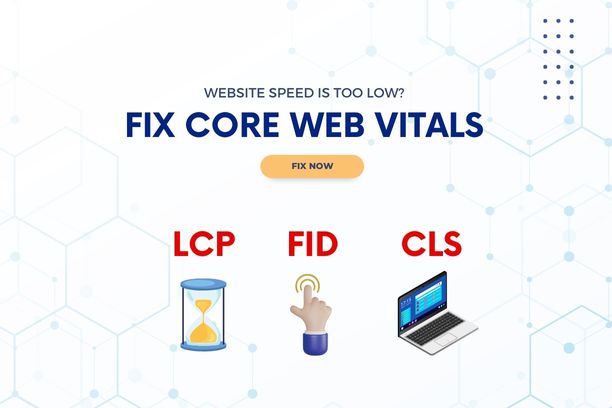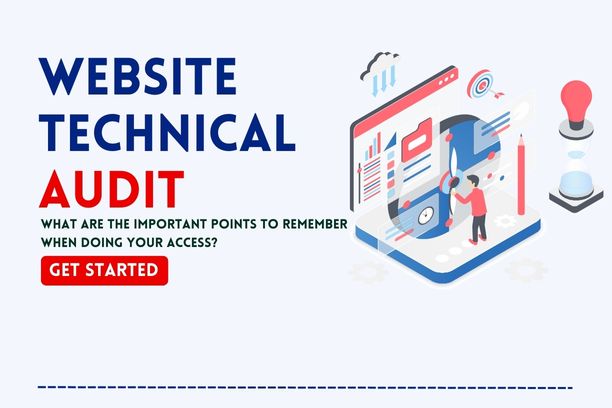Introduction to Website Audit for SEO
In the digital landscape, having a strong online presence is crucial for businesses to thrive. Search Engine Optimization (SEO) plays a pivotal role in enhancing visibility and driving organic traffic to websites. However, SEO success isn’t solely reliant on content and keywords; it also involves technical aspects that influence a website’s performance on search engine results pages (SERPs). Conducting a comprehensive technical website audit is essential to identify and rectify any issues that may hinder search engine crawlers from properly indexing and ranking your site.
Understanding the Importance of Technical Website Audit
A technical website audit serves as a diagnostic tool to uncover underlying issues that may impede a website’s SEO performance. By evaluating various technical elements such as website structure, speed, security, and mobile responsiveness, businesses can ensure their website adheres to search engine guidelines and delivers a seamless user experience. Additionally, a thorough audit enables businesses to identify opportunities for optimization and improvement, ultimately enhancing their online visibility and driving organic traffic.
Preparation for Website Audit
Before diving into the audit process, it’s essential to gather the necessary tools and resources to facilitate the assessment effectively. Additionally, setting clear objectives and goals for the audit will provide direction and focus throughout the process. Whether it’s improving website speed, addressing security vulnerabilities, or enhancing mobile responsiveness, defining specific goals will help prioritize tasks and allocate resources efficiently.
Crawling and Indexing Analysis
The first step in a technical website audit involves analyzing how search engine crawlers interact with your site. This includes evaluating the website’s crawlability to ensure that all pages are accessible and indexable by search engines. Additionally, assessing the indexation status helps identify any pages that may be excluded or improperly indexed, allowing for timely resolution of indexing issues.
On-Page SEO Analysis
On-page SEO elements play a crucial role in determining a website’s relevance and ranking potential. Conducting a thorough analysis of meta tags, descriptions, URL structures, and internal linking helps optimize on-page elements for better search visibility. Furthermore, assessing content quality and relevance ensures that the website provides valuable and engaging content that resonates with the target audience.
Technical SEO Audit
Technical aspects such as website speed, mobile friendliness, and site architecture significantly impact a website’s SEO performance. Conducting a technical SEO audit involves evaluating these factors to identify areas for improvement. Optimizing site speed, ensuring mobile responsiveness, and optimizing site architecture enhance user experience and contribute to higher search rankings.
Website Security Assessment
Website security is paramount in safeguarding sensitive information and maintaining user trust. Conducting a security assessment helps identify and address potential vulnerabilities that may compromise the integrity of the website. Implementing SSL certification and robust security measures not only protects the website from cyber threats but also signals trustworthiness to both users and search engines.
Backlink Analysis
Backlinks are a crucial ranking factor in search engine algorithms, but not all backlinks are created equal. Conducting a backlink analysis helps evaluate the quality and relevance of inbound links pointing to your site. Identifying toxic backlinks and disavowing them can prevent negative impacts on your site’s SEO performance and ensure a healthy backlink profile.
Content Audit
Content is the cornerstone of any successful SEO strategy, but not all content is created equal. Conducting a content audit helps assess the relevance, quality, and uniqueness of existing content. Identifying duplicate content issues and optimizing content for target keywords enhances search visibility and improves user engagement.
User Experience Evaluation
User experience (UX) plays a significant role in determining website usability and engagement. Conducting a UX evaluation involves assessing factors such as website design, navigation, and functionality. Optimizing user interface and design elements enhances user satisfaction and encourages prolonged engagement, ultimately contributing to higher search rankings.
Structured Data Review
Structured data markup helps search engines understand the content and context of a website better. Implementing schema markup and optimizing rich snippets and knowledge graphs can enhance search visibility and improve click-through rates. Conducting a structured data review ensures that the website’s markup is optimized for maximum SEO benefit.
Performance Monitoring
Monitoring website performance is essential to track the effectiveness of SEO efforts and identify areas for improvement. Setting up analytics and tracking tools allows businesses to monitor key performance indicators (KPIs) such as organic traffic, bounce rate, and conversion rate. Regular performance monitoring enables businesses to adapt their SEO strategies to evolving trends and algorithms effectively.
Recommendations and Action Plan
Based on the findings of the website audit, it’s crucial to prioritize issues and opportunities and develop a comprehensive action plan. Whether it’s fixing technical errors, optimizing content, or improving user experience, creating a structured roadmap ensures that resources are allocated effectively to achieve SEO objectives.
Implementing Changes and Monitoring Progress
Executing recommended changes is only the first step; monitoring progress is essential to assess the impact of optimization efforts. Tracking performance improvements allows businesses to measure the effectiveness of SEO strategies and make data-driven decisions. Continuously monitoring progress and adapting strategies based on performance insights ensures long-term SEO success.
Conclusion
Conducting a complete technical website audit is essential for optimizing SEO performance and enhancing online visibility. By evaluating various technical aspects such as crawling and indexing, on-page SEO, technical SEO, security, backlinks, content, user experience, and structured data, businesses can identify opportunities for improvement and implement effective optimization strategies. By prioritizing SEO best practices and continuously monitoring performance, businesses can achieve sustainable growth and outperform competitors in the digital landscape.




